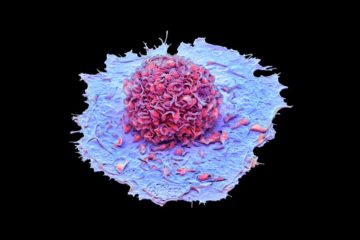Smiriti Malapaty in Nature:
 Since the early days of the pandemic, research has suggested that inflammation leads to significant respiratory distress and other organ damage, hallmarks of severe COVID-19. But scientists have struggled to pinpoint what triggers the inflammation.
Since the early days of the pandemic, research has suggested that inflammation leads to significant respiratory distress and other organ damage, hallmarks of severe COVID-19. But scientists have struggled to pinpoint what triggers the inflammation.
The latest studies implicate two types of white blood cells — macrophages in the lungs, and monocytes in the blood — which, once infected with the virus, trigger the inflammation. The studies also provide conclusive evidence that the virus can infect and replicate in immune cells — and reveal how it enters those cells. Evidence of such infections has been mixed until now.
The studies offer a plausible explanation for how severe COVID-19 progresses, says Malik Peiris, a virologist at the University of Hong Kong. “I don’t think it is the only or most important pathway, but it is certainly interesting.”
More here.
